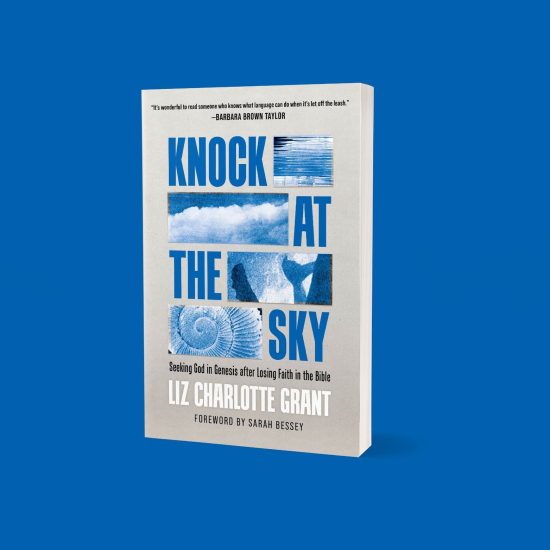 The Covenant with Noah
The Covenant with Noah
Formations: January 29, 2017
Scripture: Genesis 9:1-6, 12-17
 Michael K OlmstedAmong my favorite art objects is a hand-carved Noah’s ark and a delightful collection of animals parading two-by-two, including penguins and elephants. I commissioned this work by Ruth Sheeley, a gifted wood carver, friend, and church member. Unlike the biblical account of Noah’s flood, Ruth’s creativity makes me laugh. Noah’s story presents a sobering picture of humanity’s spiritual foolishness and God’s overcoming grace.
Michael K OlmstedAmong my favorite art objects is a hand-carved Noah’s ark and a delightful collection of animals parading two-by-two, including penguins and elephants. I commissioned this work by Ruth Sheeley, a gifted wood carver, friend, and church member. Unlike the biblical account of Noah’s flood, Ruth’s creativity makes me laugh. Noah’s story presents a sobering picture of humanity’s spiritual foolishness and God’s overcoming grace.
The Old Testament is a handbook of critical stories, a colorful unfolding of our sinfulness and God’s unique blend of love and righteousness. I wonder who put together these remarkable ancient stories and made sure they were preserved over the generations? Paul offers a concise answer: “All Scripture is inspired by God and profitable for teaching, for reproof, for correction, for training in righteousness; that the man (every believer) of God may be adequate, equipped for every good work” (2 Timothy 3:16-17 NASV). Those ancient stories were kept alive by retelling as oral tradition before they were written down for all the generations. Noah is like us and we are like Noah. The hoped-for outcome is that, unlike Noah, we will learn to live differently.
Of course this is no children’s fantasy. It is dark and tragic with a clear option of hope. Viewed against the story of Eden and the tragedy of Adam and Eve’s choice, we realize that no matter how perfect the environment and how powerful the love of God, the human creature craves power and comfort without considering the responsibility and consequences. We should not be surprised by God’s reaction to Noah’s world: “The Lord saw that humanity had become thoroughly evil and that every idea their minds thought up was flawed or evil. The Lord regretted making human beings on the earth, and he was heartbroken” (Genesis 6:5-6). God’s plan of action was to wash the whole degenerate lot off the earth!
But God – and people – are never quite that simple. We glimpse the mystery and wonder of God’s grace. The Lord appeared to Noah, invited him to build an ark and include his family as well as male and female representatives of the animal world to make a new beginning. That menagerie floats on the flood waters until God tells Noah it is safe to open the doors and start over again. In this new beginning God blesses Noah and his family: “Be fertile, multiply, and fill the earth” (9:1). Look back to Eden in the very beginning and you will hear God blessing Adam and Eve in the same way. It is still true that our children are us, desperately in need of God’s love and guidance.
God reaches beyond the law about humans living together in this world to how we are to relate to God. This is a concept we are neither capable of deciding or accomplishing. The idea is “covenant,” and this story marks the first time this word appears in the Old Testament. In the Eden story Adam and Eve begin knowing only the companionship of God when He was “walking in the garden in the cool of the day” (3:8). Before that relationship could be firmly established, Adam and Eve chose another way and found themselves in “their kind of world.” God’s call to Noah signals the possibility of a new kind of relationship with God, but this time it will not be in an idyllic garden, but, rather, in a world of complications and challenges. Covenant means a relationship instituted by God, dependent on God’s grace instead of our wishes and rights and experienced through faith. God’s intention is not a religious or legal contract, but a lasting relationship in which the descendants of Noah (that’s us) can learn, grow and become whole in God’s love and grace.
In the power of that moment, with the floodwaters gone and the world newly alive, God speaks his hope by a symbol we still know. God says, “I have placed my bow in the clouds; it will be the symbol of the covenant between me and the earth” (9:13). Note that whenever a rainbow appears God says “I will remember the covenant between me and every living being among the all the living creatures” (9:15). We usually see God as exalted in his holiness, totally other from us, but here God is connecting with us in the reality of this world, a connection that will be most powerful when Jesus, “God with us,” will die on the cross. This covenant with Noah is a magnificent new vision of God’s grace opened before us. God never forgets, but the collected stories of the Old Testament remind us how often we forget. Hence there are more covenants in the Old Testament to point us back to God’s promises.
Rainbows remind God of Noah and our need for God’s forgiveness, but they must also remind us that our hope is solely in the grace of God. Our sin produces grief and anger in God, but God’s character is also the origin of love and grace. When we are commanded to forgive those who harm us, help the hurting and disadvantaged, and care for those who are enemies, we remember this is only possible with God’s help. He understands. He has, from the beginning, dealt with the flaws of every generation. God has given us hope even to the unequaled event of the cross and resurrection.
God’s covenant with Noah is the first formal relationship God establishes with us, an open and powerful response to our sin, a memorable truth pointing to the ultimate gift of life through Jesus Christ. There are many stories about our sin through the generations and many times when God intervened to remind us of his love. Noah’s story clearly presents the destructive power of evil, the judgment of God and the hope that only God can offer. Rejoice that the story ends with a rainbow instead of darkness!
Retired after more than 45 years in pastoral ministry, Michael K. Olmsted enjoys family, supply preaching and interim work, literature, history, the arts and antiques.
Formations is a curriculum series from Smyth & Helwys Publishing, Inc. through NextSunday Resources.
The PDF download requires the free Acrobat Reader program. It can be downloaded and installed at https://get.adobe.com/reader.



